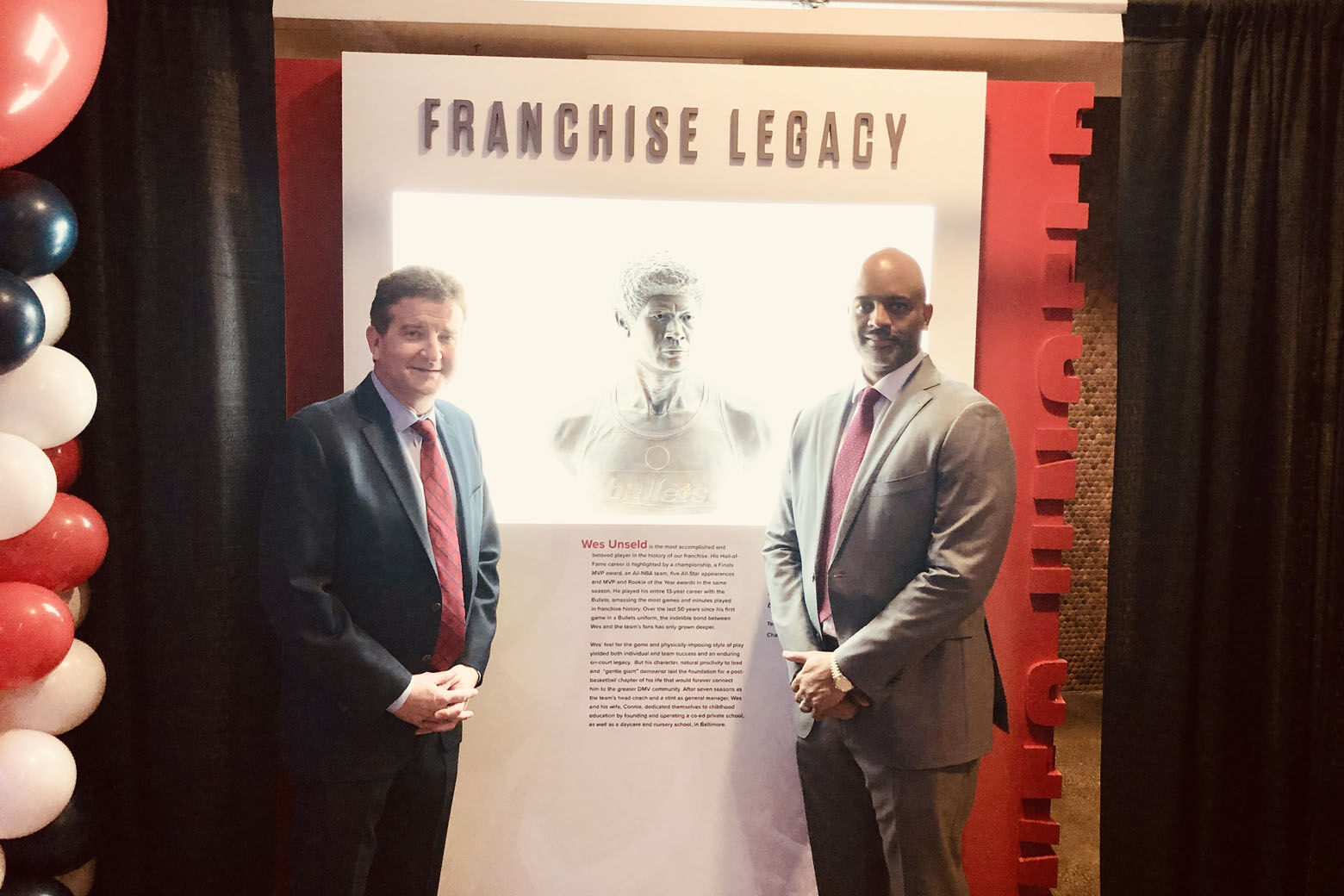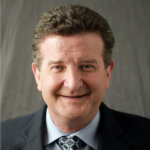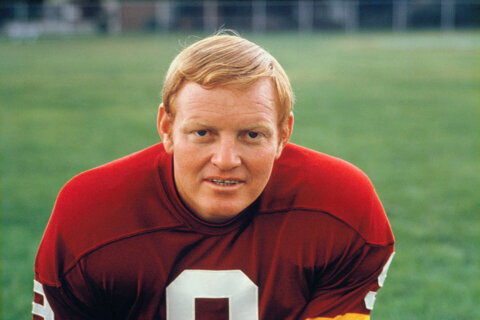
On the concourse at Capital One Arena just outside Section 111, inside a beautifully-arranged display case, a bust of Washington legend and late NBA Hall-of-Famer Wes Unseld now stands.
The sculpture captures Unseld’s famous stare, a purposeful glare that struck fear in opponents on the court and elicited thought in conversations off the court.
It was my honor to emcee the unveiling ceremony Friday. As his family, including his wife, Connie, daughter, Kim, and his son, Wizards head coach Wes Unseld Jr., looked on, I could still feel his presence, his sly smile and imagine his gruff voice saying, “Why are you making such a big fuss about me? Don’t you have anything else better to do?”
Connie Unseld was married for 50 years to Wes, who died last year at age of 74. She said it has not been easy without him, but she is experiencing joy in seeing her son coach the Wizards and to have him, along with his own wife and two children, back in the area.
But her tears flowed when the bust was unveiled.
“Maybe he is here for a reason,” said Connie Unseld. “Looking at him, people will see a good role model. With his work ethic and all he accomplished and how he did it. With the way the world is now, it is the right time and right place to do something like this because we definitely need people courageous, committed, family-oriented.”
Unseld played for the Bullets from 1968 to 1981 and guided the franchise through its most successful period, including four trips to the NBA Finals and a title in 1978.
Wes Unseld was the Washington Bullets’ center, and he deserved to the center of attention, but he didn’t need or want that. It’s a good thing Unseld’s resume speaks for itself, because he was never going to talk about it.
In 1988, Unseld was inducted into the Naismith Basketball Hall of Fame. In 1996, he was named one of the 50 greatest NBA players of all time, and now is a member of the NBA’s 75th anniversary team.
For his career he averaged over 10 points and 14 rebounds per game. Along with fellow Hall of Famer Wilt Chamberlain, Unseld is the only player in NBA history to be named Rookie of the Year and MVP in the same season.
“I get a kick out of hearing Dr. J. say on TV that the only player Wilt Chamberlain feared was Wes Unseld,” said Wizards owner Ted Leonsis, who came with the idea to commission a bust of Unseld. “It is our way of saying to the Unseld family he is permanent fixture, and is like a monument here at Capital One Arena.”
“He never did look for the limelight,” said Phil Chenier, a former teammate of Unseld’s and a friend for close to 50 years. “He was the rock of the team. He was the guy who made everybody feel confident and comfortable.”
Physically, Unseld was a rock of a man, and he exhibited strength in the way he played, in his his convictions, and in his affection for his family and friends. As intimidating as he could be on the court, Unseld was very welcoming off the court.
I knew Unseld for more than 30 years. I remember a lot of conversations with him, but not about basketball. Topics ranged from family to politics to racial equality. He made you think. He made me want to be better and smarter.
Unseld did not suffer fools gladly. He would be welcoming if you approached him with intelligence and respect, and if you did, it was time well spent.
In Unseld’s company, you were truly in his company. He was in the moment and was engaging and curious. He would show a genuine interest in what you were doing and how you were doing.
I vividly remember a road trip to Miami when he asked me specific questions about some of the equipment used in my Wizards radio broadcasts, and was fascinated by the new digital technology of the time. I can assure you he is the only basketball executive, coach or player who ever spent time asking about how my pregame show was produced.
“He was very patient and he was very personable,” said Chenier. “I think I would use the word compassionate. He seemed to have a way of making people around him feel comfortable, even though initially they were uncomfortable and somewhat intimidated by his size and stature. Once they started interacting with them or talking with him, they would feel comfortable.”
Unseld was not critical of people, but appreciated critical thinking.
He shared a passion for education with Connie, and in 1979 founded the Unseld School just outside of Baltimore. The first graduate of the school was their son, a graduate of Johns Hopkins University. Kimberly is still a teacher there.
“The school was Connie’s vision; this was her dream, and he jumped on board with it and supported her in any way he could,” said Chenier. “He would drive the bus; sometimes he would be the maintenance man, or deliver the lunches, or do whatever needed to be done. He was happy and proud to do that.”
That was typical Wes Unseld. He was the ultimate team player.








